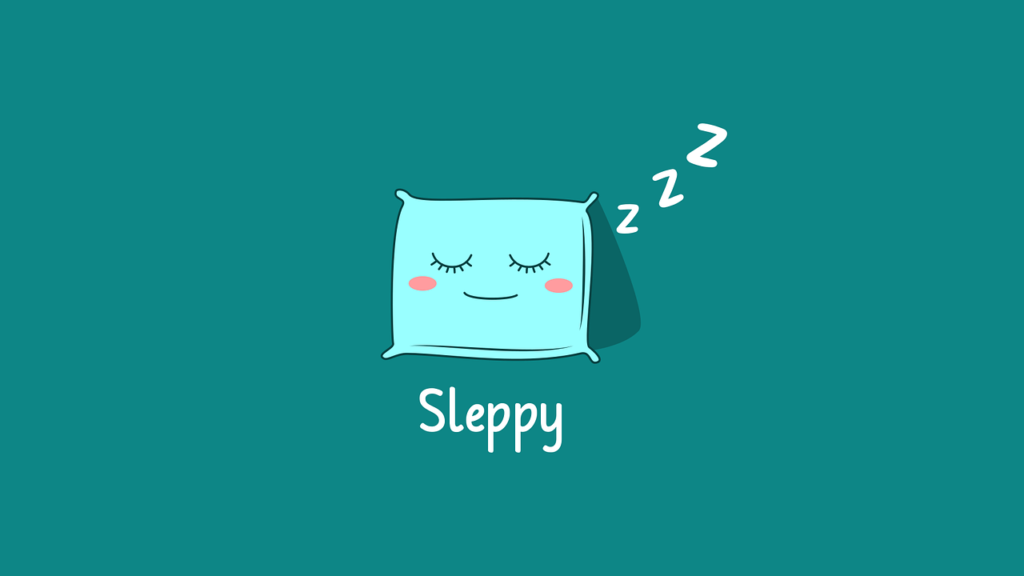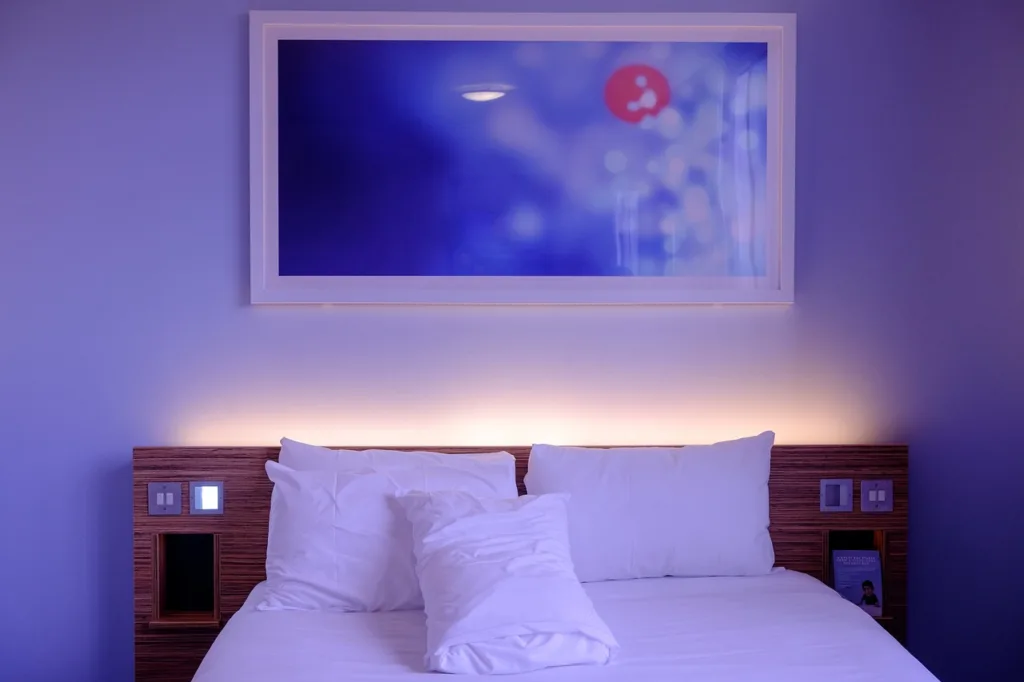
1. Introduction: Embracing the Lazy Lifestyle
If you struggle to fall asleep or find yourself waking up feeling groggy and exhausted, you are not alone. Many people face difficulty getting a good night’s sleep and waking up refreshed. The good news is that there are simple relaxation techniques that can help you sleep better and wake up feeling rejuvenated. In this blog, we will explore the most relaxing ways to sleep, techniques to help you sleep, and the effects of relaxation techniques on the brain. We will also discuss how reducing stress can improve sleep quality. If you are ready to finally experience peaceful nights and refreshed mornings, keep reading!
2. The Importance of Quality Sleep
Quality sleep is not just a luxury; it is a necessity for our overall well-being. When we prioritize getting enough restful sleep each night, we set ourselves up for success in all aspects of life. Adequate sleep plays a crucial role in our physical health, mental clarity, and emotional stability.
During sleep, our bodies go through a process of repair and rejuvenation. This is when our cells regenerate, our muscles recover, and our immune system strengthens. Without enough quality sleep, our bodies become more vulnerable to illnesses and chronic conditions.
Furthermore, sleep is essential for cognitive function and mental alertness. When we don’t get enough sleep, we may experience difficulty concentrating, memory lapses, and decreased productivity. On the other hand, a well-rested mind is sharper, more focused, and capable of performing at its best.
Emotionally, sleep deprivation can take a toll on our mood and emotional stability. A lack of sleep often leads to irritability, mood swings, and increased stress levels. Conversely, a good night’s sleep can help us maintain emotional balance, improve our relationships, and better cope with daily challenges.
In conclusion, quality sleep is not to be underestimated. It is the key to our overall health and well-being. By prioritizing restful sleep, we give ourselves the opportunity to wake up feeling refreshed, energized, and ready to face the day ahead. In the following sections, we will delve into specific techniques to optimize your sleep and wake up feeling rejuvenated. Stay tuned!
3. Creating a Cozy Sleep Environment

Now that we understand the importance of quality sleep, let’s explore how we can create a cozy sleep environment that promotes restful nights and refreshing mornings.
The first step is to ensure your bedroom is a sanctuary for sleep. Keep it clutter-free and organized, as a serene space encourages relaxation and tranquility. Consider using soft, neutral colors for your walls and bedding, as these promote a sense of calmness.
Invest in a comfortable mattress and pillows that provide adequate support for your body. The right bedding can make a significant difference in your sleep quality and help alleviate any discomfort or aches you may experience during the night.
Keep the room cool and well-ventilated, as temperature plays a crucial role in sleep regulation. Studies have shown that a slightly cooler room promotes better sleep, so try adjusting your thermostat accordingly.
To create a peaceful atmosphere, minimize noise and block out any excess light. Consider using blackout curtains, white noise machines, or earplugs if needed. These simple adjustments can make a world of difference in helping you fall asleep faster and stay asleep throughout the night.
Lastly, establish a bedtime routine that signals to your body and mind that it’s time to unwind and prepare for sleep. This could involve activities such as reading a book, practicing relaxation techniques, or taking a warm bath. By consistently following a routine, you’ll condition your body to enter a state of relaxation and prepare for a restful night’s sleep.
In the next section, we will discuss practical tips for winding down before bed to ensure a peaceful transition into sleep. So stay tuned and get ready to unlock the secrets to sleeping like a baby and waking up refreshed!
4. The Art of Falling Asleep: Tricks and Tips

First and foremost, it’s essential to create a relaxing pre-sleep routine. This routine should consist of activities that promote relaxation and signal to your body that it’s time to wind down. Avoid stimulating activities or screen time at least an hour before bed as the blue light emitted from electronic devices can interfere with your body’s melatonin production.
Instead, opt for activities that help calm your mind and prepare you for sleep. Reading a book, practicing gentle stretching or yoga, or engaging in a short meditation are excellent options. Find what works best for you and make it a non-negotiable part of your evening routine.
Another useful tip is to avoid heavy meals or caffeine in the evening hours. Consuming a large meal or caffeine close to bedtime can disrupt your sleep patterns and make it challenging to fall asleep easily. Instead, opt for a light, balanced dinner and consider herbal teas like chamomile or lavender, which have soothing properties that aid in relaxation.
Creating a sleep-inducing environment is another key aspect of falling asleep quickly. Make sure your bedroom is dark, quiet, and at a comfortable temperature. Consider investing in blackout curtains, earplugs, or a white noise machine if necessary.
Additionally, practicing relaxation techniques can help calm your mind and prepare your body for sleep. Deep breathing exercises, progressive muscle relaxation, or using aromatherapy with essential oils like lavender or chamomile can induce a sense of relaxation and promote a restful night’s sleep.
Lastly, if you find yourself lying awake for more than 20 minutes, it’s best to get out of bed and engage in a quiet, non-stimulating activity. This can help break the cycle of frustration and anxiety that can accompany insomnia. Try reading a book or listening to calming music until you feel sleepy again.
Remember, falling asleep effortlessly is an art that requires practice and consistency. Experiment with different techniques and find the ones that work best for you. By incorporating these tips into your nightly routine, you’ll soon find yourself falling asleep like a baby and waking up refreshed each morning.
In the next section, we will discuss the importance of establishing a consistent sleep schedule and explore techniques to improve the quality of your sleep. So stay tuned and get ready to take your sleep game to the next level!
5. Waking Up Refreshed: Mastering the Morning Routine

Waking up refreshed sets the tone for the rest of your day, and having a well-established morning routine can make all the difference. Start by setting a consistent wake-up time, even on weekends. This helps regulate your internal body clock and promotes better sleep at night.
To kickstart your day, try incorporating some light physical activity into your morning routine. Whether it’s a short walk, a quick yoga session, or a few stretching exercises, movement can increase blood flow and help you feel more energized.
Hydration is also key to feeling refreshed in the morning. Drink a glass of water as soon as you wake up to replenish your body after a night of sleep. You can also try adding a squeeze of lemon for an extra boost of energy and digestion benefits.
Next, take a few moments for mindfulness or meditation. Engaging in a simple breathing exercise or practicing gratitude can help calm your mind and set a positive tone for the day ahead.
Avoid reaching for your phone or checking emails first thing in the morning. Instead, dedicate the first minutes of your day to a calming activity that brings you joy, such as reading a book, journaling, or enjoying a cup of tea.
Finally, nourish your body with a balanced breakfast. Incorporate foods that provide sustained energy, such as whole grains, fruits, and lean proteins. Consider preparing overnight oats or a smoothie the night before to save time in the morning.
By establishing a consistent morning routine and incorporating these tips, you’ll start your day feeling refreshed, focused, and ready to take on the world.
In the next section, we will explore the significance of creating a sleep-friendly environment and offer practical tips to optimize your bedroom for a restful night’s sleep. So stay tuned and get ready to transform your bedroom into a sleep sanctuary!
6. Incorporating Relaxation Techniques for Better Sleep

One effective relaxation technique is practicing deep breathing exercises. This involves taking slow, deep breaths and focusing on your breath as it enters and exits your body. Deep breathing helps to relax your mind and release tension, making it easier for you to fall into a deep and restful sleep.
Another relaxation technique you can try is progressive muscle relaxation. This involves systematically tensing and then relaxing each muscle group in your body, starting from your toes and working your way up to your head. This technique helps to release physical tension, promoting a more relaxed state before bedtime.
If you find it difficult to quiet your mind before sleep, you may benefit from incorporating mindfulness meditation into your nightly routine. By focusing your attention on the present moment and acknowledging and accepting any thoughts or feelings that arise without judgment, you can reduce stress and anxiety, facilitating a better night’s sleep.
In addition to these techniques, you can also create a sleep-friendly environment by making your bedroom a calm and relaxing space. This can be achieved by keeping the room cool, dark, and quiet, using blackout curtains, earplugs, or a white noise machine if necessary.
By incorporating relaxation techniques into your nighttime routine and optimizing your sleep environment, you can greatly improve the quality of your sleep and wake up feeling refreshed and energized. In the next section, we will discuss the role of diet and nutrition in promoting good sleep. Stay tuned for some valuable tips and insights!
7. Prioritizing Sleep: Making it a Non-Negotiable
In today’s fast-paced world, many of us tend to prioritize work, socializing, or other activities over our sleep. However, neglecting sleep can have serious consequences on our physical and mental well-being. It’s time to start giving sleep the attention it deserves.
One way to prioritize sleep is by setting a consistent sleep schedule. Try to go to bed and wake up at the same time every day, even on weekends. This helps regulate your body’s internal clock and creates a routine that signals your brain and body that it’s time to rest.
Another way to prioritize sleep is by creating a nighttime routine that signals to your body that it’s time to wind down and prepare for sleep. This could include activities that help you relax, such as reading a book, taking a warm bath, or practicing gentle stretching exercises. Find what works for you and make it a habit.
Additionally, it’s important to establish boundaries and protect your sleep time. Learn to say no to activities or commitments that interfere with your sleep schedule. Remember, sleep is not a luxury but a necessity for your overall well-being.
By making sleep a non-negotiable part of your daily routine, you are giving yourself the gift of rest and rejuvenation. In the next section, we will delve into the role of diet and nutrition in promoting good sleep. Stay tuned for valuable tips on eating right for a good night’s sleep!
8. Final Thoughts: Embrace Laziness for a Well-Rested Life
Final Thoughts: Embrace Laziness for a Well-Rested Life
As we conclude our guide on sleeping like a baby and waking up refreshed, it’s important to reiterate the significance of embracing laziness for a well-rested life. In a world that glorifies busy-ness and constant productivity, it may seem counterintuitive to prioritize rest and relaxation. However, by giving yourself permission to be lazy, you are actually taking proactive steps towards improving your sleep health.
Being lazy doesn’t mean being unproductive or wasting time. It means recognizing the value of rest and allowing yourself the time to recharge and rejuvenate. By embracing laziness, you are prioritizing your physical and mental well-being, which in turn enhances your overall quality of life.
So, don’t be afraid to indulge in a lazy afternoon nap, to curl up with a good book, or to simply spend some time doing absolutely nothing. Giving yourself permission to be lazy can be the key to unlocking a well-rested and more fulfilling life.
Remember, sleep is not a luxury but a necessity. Prioritize it, protect it, and savor the rejuvenation it brings. Embrace laziness and reap the benefits of a well-rested life.


